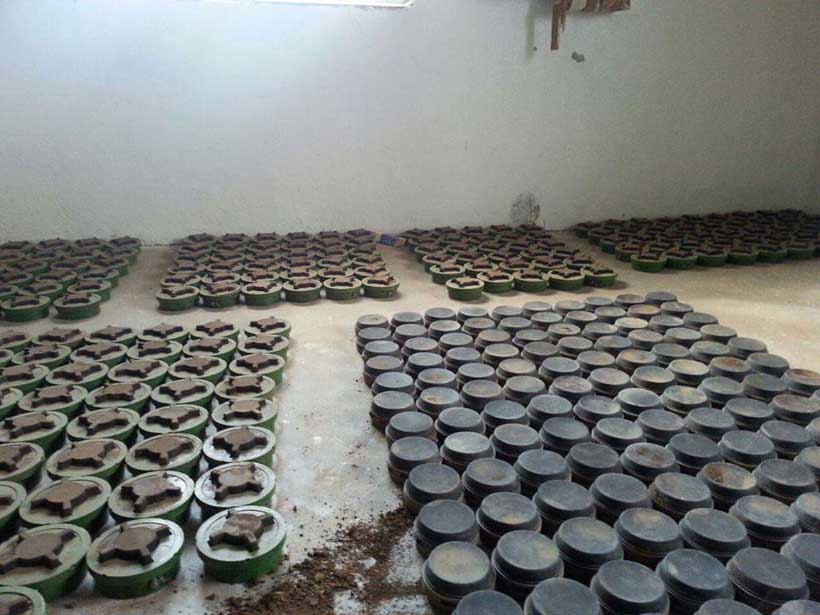Approximately, four million to six million of mines and explosive remnants of war (ERW) have been left scattered throughout the country, posing a constant threat to the safety and livelihood of its inhabitants. The Cambodian Mine Action and Victim Assistance Authority (CMAA), a state agency, reported a total of 65,035 casualties, with 19,822 resulting in fatalities, due to ordnance explosions from January 1979 to July 2023.
As these hidden explosives causing substantial socio-economic setbacks and constantly threatening the well-being of its subjects, the government has implemented various initiatives to address these lethal humanitarian hazards, ambitiously turning Cambodia into the mine-free country by 2025.
Yet, emergency assistance, medical care, rehabilitation services, physiotherapy, vocational training, and community support have remained Cambodia’s considerable obstacles due to its limited resources as it seeks to advocate the equal treatment and dignity of individuals with disabilities.
According to CMAA, between 1992 and June 2023, Cambodia has successfully cleared 2,761 square kilometers of land containing mines and ERW, including cluster munitions under the assistance from its development partners, leading to the drop of mine/ERW casualties. This remarkable progress surely enables the safe return of land to communities for agricultural and developmental purposes.
As a result, Cambodia’s mine action program has earned international acclaim and trust due to its successful and committed efforts over the last three decades. Since landmines and other ERW continue to jeopardize the safety and development of communities worldwide, these dedicated efforts also substantially contribute to the global endeavors to abolish the dangers presented by these explosive hazards, eventually building the safer and more secure world for all.
Cambodia is also a signatory to the Ottawa Convention, also known as the “Mine-Ban Treaty or the Anti-Personnel Mine Ban Convention” adopted in 1997. The main goal of this Convention is to alleviate the suffering and reduce the casualties caused by anti-personnel mines. Currently, there are 164 States Parties to the Convention, with 30 countries confirming the complete destruction of all anti-personnel mines. Notably, 33 countries, including Cambodia, are actively partaking in clearing anti-personnel mines.
Undoubtedly, with years of dedicated work in mine action, Cambodia has emerged as a leading expert in the field, making it an ideal candidate to assume a leadership role in the convention associated with mine action. Additionally, Cambodia has shared its best practices with experts and delegates from the region and beyond through organizing humanitarian demining trainings together with mine action workshop and conference.
On top of this, Cambodia’s track record of successfully hosting major regional and global events including the 11th Meeting of States Parties of the Ottawa Convention in 2011, ASEM in 2021, ASEAN Summit in 2002, 2012, and 2022, as well as South-East Asian Games and ASEAN Para Games in 2023 and other not mentioned events respectively, clearly showcasing Cambodia’s effective organizational prowess and infrastructure readiness and underscoring Cambodia’s unwavering commitment to fostering collaboration and dialogue among nations on the international stage.
As such, in recognition of these esteemed qualifications,during the 21st Meeting of State Parties to the Ottawa Convention in Geneva, Switzerland in November 2023, Cambodia was elected as the President and Host of the Fifth Review Conference of the Mine Ban Convention. The conference will be held from November 25 to 29, 2024 in Cambodia under the theme, “Siem Reap Angkor Summit on a Mine-Free World”, which will be attended by delegates from around 164 countries including international organizations and institutions.
Definitely, hosting this conference will demonstrate Cambodia’s resolute dedication to the mission of mine action and the objectives of the Convention, establishing a safer and more secure future for all. In this sense, Cambodia will proactively pursue the possibility of building a mine-free world through regional and international frameworks.
Certainly, as a conflict-torn country, Cambodia is strongly committed to global peace and security, particularly through its active participation in the UN peacekeeping operations. Most importantly, similar to other small states, Cambodia prioritizes peace and security for its existence. Thus, Cambodia strongly opposed any acts of aggression against sovereign states, interference in their domestic affairs, and the use of force in international relations. This endeavor is also laid out in one of the key objectives of Cambodia’s foreign policy, promoting global peace through upholding the principles of equality and rights for all individuals.
No doubt, mines and ERW are the destructive legacy of chronic war and armed conflicts. In 2023 while holding office, former Cambodian prime minister Hun Sen also voiced his concern and made an appeal to all stakeholders to refrain from utilizing cluster bombs in the ongoing Russian-Ukraine war. Using such weaponry would bring catastrophic consequences to innocent civilians, even after the war has ended. Clearly, Cambodia’s painful experiences of prolonged war have already substantiated these consequences. It has taken Cambodia decades to clear all those hidden killers, but the task is still not complete yet.
Given the world’s rise in conflicts and the continuing deployment of anti-personnel mines, it is crucial for all state members to maintain a steadfast dedication to nurturing international humanitarian law, human rights, and human security in line with the UN Charter through joint collaborations and promotion of the rule-based global order.
Together, they will be able to advocate for a world where peace, security, stability, sustainable development, and prosperity that can be shared and cherished by everyone.
